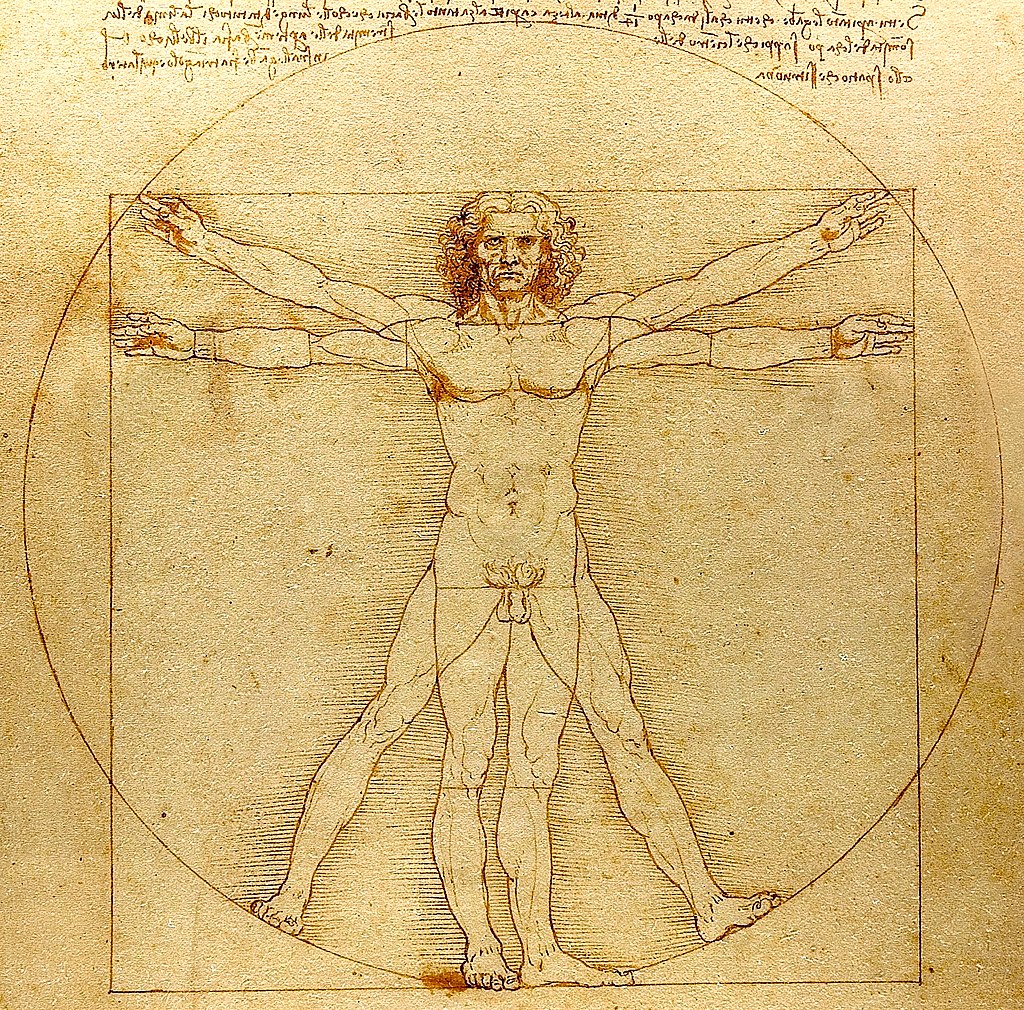Whenever we are dealing with potent force, we need to handle it with great care and control.

You have probably heard of the four fundamental forces of nature: electromagnetic force, gravity, and strong and weak nuclear forces, which together govern the interaction of matter and energy and hence the organization of the Universe. Here is a fun thought experiment, have you ever wondered — what forces govern human interaction and the formation of collective structure in society? If there are no forces and interaction between humans, we would all be atomized individuals conceivably.
While we tend to think that particle colliding, atoms forming and spacetime bending are deterministic and fine-tuned with some immutable constants (is it?), the forces of humanity in contrast seem to be less certain because we believe, free will is with us. The interesting implication is that these human forces are not passively unfolding, but rather, they “appear” to be actionable and controllable, by our sheer will. We will stick with this assumption because I want you to get something out of this article that you can act on.

Love
Love is really a no-brainer, every dramatic love story, heroic movie, and inspirational talk has shown that the powerful force of love can really change the world for good. For a burrow-dwelling marmot who doesn’t understand much about social interaction, I still concur that love is extremely potent in shaping humanity, but not necessarily in a good way (I will explain why).
Love is a creative force. It dictates what is being encouraged in society, like a social reward mechanism. It supports good causes and spreads positivity. It extends to non-living objects as well i.e., if everyone loves smartphones, phone stores and factories (a kind of collective structure) will pop up inevitably.
Love also determines sex and procreation, how many little humans are brought into the world (these little guys will go on to build/destroy things in the world), and who gets to pass on their genes and memes, thus directly affecting the course of human evolution.
Here is the caveat. We cannot love everything and drown the world with love. Certain things deserve to be hated or ignored if we are honest enough to admit that every single human is imperfect, imperfect in a tangible way that inflicts negative impacts on the world. Try to use love to “melt the heart” of some maniac bombing your city, it won’t work. You are also not gonna be able to use love to reason with climate change deniers. Love your cheating ex too much? When you tolerate and stay with them, it implicitly supports them to go out and hurt (destroy) more people.
Love can be a destructive force. An intense level of love is usually directed at a specific person or group, which tends to empower ego-centric people and indirectly bring externality and inequality to the world. So, love doesn’t just build things, it can also destroy our once common landscape. Choose wisely.
Love should be controlled at the right level and directed at the right cause, instead of letting it exudes and permeates aimlessly. It needs order, not chaos, in order to breed structure and stability.
Hate
As mentioned, there are many things in the world that deserve to be hated. As humans, hating certain things is very natural, we naturally detest or feel disgusted towards spiders, antisocial behaviors, or any sort of asymmetry from facial to power asymmetry, etc. We humans can take it one level further by being capable of “choosing to hate” certain things that we are not used to hating.
Hate (or some form of “dislike/repulsion” if you find “hate” too politically incorrect) can act like an opposite force to love, but not exactly. Intuitively, hate can be used directly to dissolve (bad) structures and norms that are blocking the Earth from rotating. For instance, if everyone suddenly hates cars, nobody would drive one and car factories will shut down (and then more mass transit options may pop up, who knows?).
Because of the laws of thermodynamics, destroying order and structure is easier than building it, thus hatred needs to be even more tightly controlled than love. Over-hatred spirals into mass violence and wars, which destroy all structures and trigger a complete rebuild, which is obviously incongruent with the goal of peace and stability.
Nevertheless, if we can control hatred at the right level, for the right cause, it can be a potent social punishment/disciplinary mechanism. We detest narcissistic and arrogant people, hence why we always have that sense of humility in the back of our minds. We detest thieves, hence why anyone would think twice before shoplifting. We detest murderers, hence why anyone would think thrice before stabbing someone in the back. So yes, hate can also create structure and order.
Now you can probably see, love and hate are quite the two faces of the same coin (neuroscience would agree). If you are old enough, I am sure you have experienced hating someone the more you love them. In the particle physics sense, they are kind of like the electroweak force, unified in certain conditions but identified separately in most cases. If the two forces are controlled rightly, they work complementarily, instead of being antagonistic.
Trust/Courage
I have a hard time deciding whether trust or courage deserves to be “crowned” as a fundamental force of humanity. If you think about it, courage is really just trusting in one’s own ability, and trusting others means having the courage to bond with others, so they are really synonymous in a sense.
Why is it a fundamental force? At the basic level, you are only able to be a coherent person if you trust in yourself, like the strong force that holds subatomic particles to form atomic nuclei. Otherwise, even an atomized individual would be further torn from within. In other words, our world would become a cesspool of mental disorders and no meaningful structure can be formed.
Trust is also the backbone of lasting belief and action. Without it, you would have empty, ephemeral love and hatred, empty relationships and meaningless wars.
Of course, you cannot always blindly trust yourself or others, it would be dangerous to trust yourself in some unrealistic ability that you don’t actually have. Trusting others and the economic system too much? Next, we brought so many little humans to the world to the point of peak population, peak energy, peak elements XYZ, like chains of atoms binding too tight to the point of creating an out-of-control nuclear explosion.
As René Descartes had put forward, skepticism could be a better default position than unyielding trust. Skepticism doesn’t mean you shouldn’t trust yourself or others, as skepticism involves “doubting the doubts”, hence it is a way to consolidate real trust that has substance and dissolve irrational trust that resembles addictions. Again, there is a golden mean to be sought in order to create a just and trusting world.
Curiosity
Curiosity attracts knowledge, knowledge leads to enlightenment and the acceptance of certain facts and principles over another, thereby giving rise to a “map” or “fabric” of preferences.
This map directs what is to be loved, hated, and trusted “in the long-range”. Our individual preference at one moment may not seem so much, but combining our preference with more people and a long enough time, it becomes a visibly potent force that shapes the trajectory of human civilizations. In other words, curiosity binds like-minded people together, knowledge into fields, fields into sub-culture, sub-culture into deep-rooted identities and preferences i.e., it drives the formation of clusters, like gravity forming space rocks, planets, and stars over large space and long timescale. The only difference is that our curiosity and preferences change, but gravity doesn’t.
As you might have guessed, curiosity also needs to be controlled and guided. If gravity is too strong at one locale, matters would crunch into a black hole. Same with curiosity, if we are too curious about one very specific thing (due to propaganda/obsession), our preference would be preoccupied with this very thing and we would live in our own world and become hostile to any outsiders. Think of a mad anatomist too curious about the internal architecture of humans, surely this isn’t someone you would want to get close to.
Conversely, if we are too curious about everything, we would either be torn among multiple black holes, or else the resultant preference may be too weak and flaky because we always lose interest when something new comes, no lasting structure can be formed in this scenario.
What to take home?
These four forces are mutually interacting and cannot build or accomplish anything each on their own. They work congruently but differently at different scales of space and time, which is crucial to creating a diversity of structures and orders.
You may have heard the Universe appears fine-tuned for life and complex structure that, e.g., if the strong nuclear force is weaker, few elements beyond hydrogen would exist. Whether we buy into it or not, it is clear that we cannot say the same about humanity (that humans are already fine-tuned), even with a good amount of courage. The fortunate thing is that we can still harness the great degree of freedom of our will to find the Golden mean — leading the path to a human world that does not breed vice nor crumble shortly like a roller coaster ride.
As physicists are hunting the fifth force of nature, one can’t help but ask, what about the fifth force of humanity? My naive conjecture is that the best candidate would be unbiased critical thinking, as all these talks of finding the “right level”, and the “right cause”, are only achievable if we harness this unique ability. Critical thinking is an omnipresent but intangible “moderating” force on our actions, and it also expands the realm of possibility of our actions by synthesizing new insights, somewhat akin to dark energy playing an important role in the expansion of the Universe but is hard to characterize its exact nature and ubiquitous influences in the world.
To end, this article is a very short journey with my thoughts, which I hope you find inspiring. In the future, I will continue to explore deeper about this topic, so stay tuned and stay curious!
If you like this story, please subscribe to me, and share it! You can also support me here!

